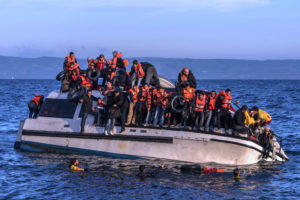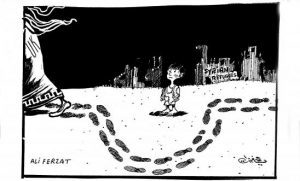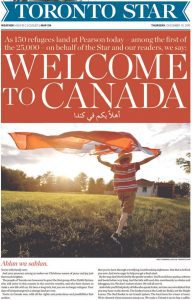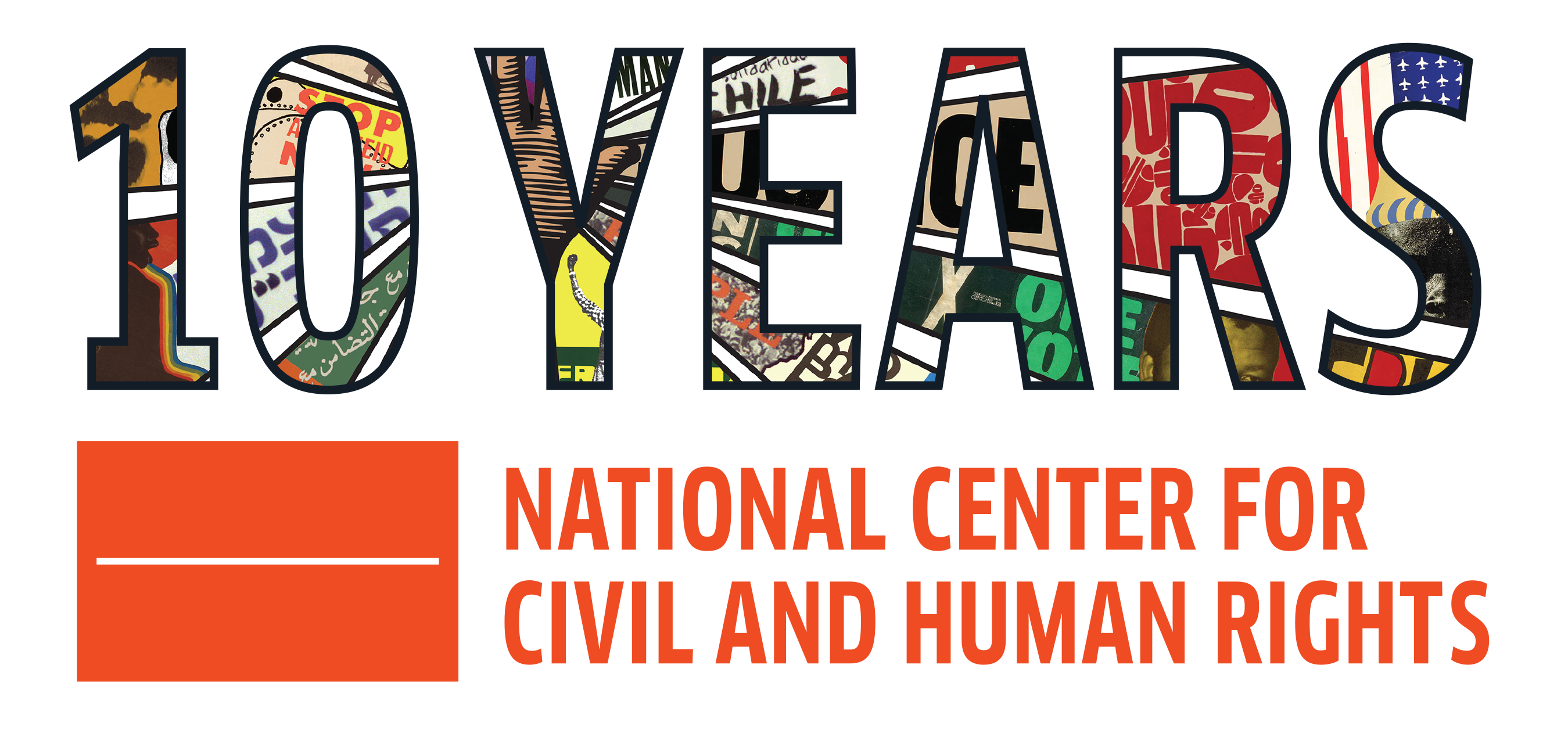Marking the Anniversary of the UDHR: Support Refugees
Author of this blog post, Jill Savitt is a human rights advocate with expertise in the fields of genocide prevention and strategic communications for advocacy campaigns on human rights issues. She is also the Human Rights Curator of The Center’s SPARK OF CONVICTION exhibition.
December 10, Human Rights Day, will mark the 68th anniversary of the Universal Declaration for Human Rights (UDHR) – the bill of rights for all mankind.
Created in the aftermath of the horrors of World War II, and built from the tenets of constitutions and religions around the world, the UDHR outlines a set of universal standards for human dignity.
One core principle addresses the right of everyone to leave their country if they have a credible fear of being harmed there – killed, tortured, or politically persecuted – and to find safety and protection in another country. An entire body of law has developed around the rights of refugees – and the obligations of governments to take in those forced to flee their homes.

Right now, according to the United Nations, there are now some 20 million refugees around the world – the largest number since World War II. Syrians account for the greatest number – more than half the country’s population is displaced, by barrel bombs and chemical attacks and other violence from the Assad regime, and more recently, from violence by the so-called Islamic State.
Most have fled to neighboring countries – Turkey, Lebanon and Jordan. But the humanitarian commitment from Western governments to aid refugees has fallen considerably below the level of need, which has put an increased burden on the countries closest to Syria. As a result, neighboring countries have imposed restrictions on allowing more refugees in, and have made life even harder — and harsher — for those who have already fled.

That’s why so many more Syrians have attempted to get into Europe – more than a million over the past year. Some have attempted the dangerous journey by sea – and lost their lives, as was so tragically represented by the images of three-year-old Alan Kurdi, who drowned; since 2014, more than 7,000 people have died at sea making the journey.
Despite the evidence of so much despair, Europe has been closing its borders, and the United States has been equally unwelcoming. Historically the global leader on refugee resettlement and humanitarian aid, the United States, as of this fall, had resettled just 10,000 Syrians – less than 0.2 percent of the total Syrian refugee population.

https://www.amnesty.org.uk/syrian-refugee-crisis-cartoonist-ali-ferzat
In part, the response is because of an upsurge in nativism. Populist leaders in Europe and the US have launched full-throated campaigns to demonize refugees – claiming, often with no concrete evidence, that refugees will take jobs, burden economies and commit terrorist acts. These populists distort legitimate fears and anxieties for their own political gain.
One country’s response to Syria’s refugees has been entirely different. Canada has welcomed tens of thousands of Syria’s refugees, and the country’s president, Justin Trudeau, has even greeted new arrivals at the airport.

In addition to a traditional government program for refugee resettlement, Canada allows private citizens to sponsor individual refugees and their families. Private citizens agree to pay for refugees’ travel, as well as their housing and food for one year, and commit to helping refugees integrate into life in Canada. Groups of friends, family or co-workers form to share the costs. The bonds of friendship that have formed between Canadians and new arrivals are life affirming – and show what is possible when people connect on a human level.
Perhaps more importantly, Canada has experienced absolutely no negative economic or security consequences for its generosity.
The United States does not yet allow private sponsorship by citizens, though US refugee advocates are increasingly putting this issue on the policy agenda.
But we don’t need to wait for an official program to welcome refugees, especially those who have arrived recently from Syria or elsewhere; over the past decade, the US has resettled more than a million refugees – so there are many people to meet, welcome, and embrace. From inviting a refugee for coffee or dinner to pushing back on racist claims on social media, Americans can make good on the promises and spirit of the UDHR. This would make an enormous contribution to changing the negative, and false, narrative that has taken hold about refugees.
In polarized and perilous times, individual acts of humanity are essential to turn the tide. This requires people to act their conscience – to not only think in new ways, but to act. Will you commit to making December 10, the anniversary of the UDHR, the day you do?

